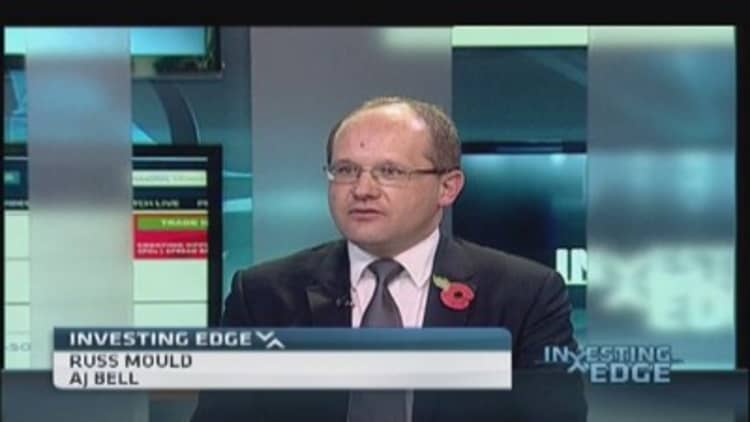A "yin-yang" global economy has emerged with increasingly intertwined markets meaning that one country's monetary policy can have unintended negative consequences elsewhere, says Morgan Stanley chief international economist Joachim Fels.
For example, the stronger dollar and rising U.S. interest rates, a side-effect of expectations that the Federal Reserve will soon begin to taper its asset purchases, are weighing on emerging market economies with large current account deficits, he said in a note published on Sunday.
After the Fed indicated it was considering tapering in May, emerging markets went through a volatile period, with fund outflows tanking stock markets and weighing on local currencies. In August, India's rupee plunged to a record low of 68.8 against the U.S. dollar, but has since recovered somewhat to around 62.55.
(Read more: Currency wars: Is the euro losing the battle?)
Japan's aggressive monetary stimulus meanwhile has had unintended consequences elsewhere, for instance by increasing deflationary pressures in the euro area, Fels said.
"Japan versus the euro area is another example of the yin-yang global economy," with the yen's sharp depreciation against the euro a side-effect of Japan's progress on overcoming deflation, he said. Yin-yang, a concept from Chinese philosophy, is used to describe how seemingly opposite forces are interconnected.
The Bank of Japan pledged in April to pump $1.4 trillion into the Japanese economy over the following two years, marking the world's most aggressive quantitative easing program, as the country aimed to break out of two decades of deflation.
(Read more: Fragile five: The new focus of currency wars)
"This in turn has contributed to the increasing deflationary pressures in the euro area," Fels said.
"The attempt by Japan to 'de-Japanify' has, somewhat ironically, contributed to the rising risk of a Japanification of the euro area," Fels said. As funds flow out of Japan seeking higher returns elsewhere, the yen is weakening and the euro is strengthening as funds flow into euro zone markets.
A stronger euro is keeping inflation on the continent low, hurting the competitiveness of Europe's exports and limiting economic growth.

The idea that the extraordinary easing actions of central banks in the developed may hurt other countries isn't new.
In 2010, Brazil's Finance Minister Guido Mantega popularized the phrase "currency wars" after developed nations, such as the U.S. and the euro zone, rolled out a series of easing measures, which he said were aimed at bolstering their exports by weakening their currencies, and which pushed up emerging market currencies.
Now, emerging markets are complaining that the Fed is preparing to roll back some of those measures, noted Shane Oliver, chief economist at AMP Capital.
(Read more: Asia is still at risk from quantitative easing: Nomura)
But Oliver added: "If America hadn't done what it did three years ago with QE [quantitative easing], the world would be a worse place."
While at times of crisis, central banks have been seen to act together, their policies can't always be coordinated, he said.
"The world has very low inflation and sub-par economic activity. To provide stimulus to the extent it forces other countries to provide stimulus is probably a good outcome," he said.
"U.S. stimulus probably forced Japan to do the same," Oliver said. "If the ECB [European Central Bank] is eventually forced to undertake more stimulus, that's probably a good thing."
(Read more: High growth is only exit from QE : El-Erian)
He believes Japan's easing measures are "one of the great success stories of this year," even if it's spurring the euro zone's issues with potential deflation.
"I'd much rather that outcome than the BOJ saying it's not going to do anything unless the ECB's happy with it," Oliver said. "They'd have been mucking around forever."
—By CNBC.Com's Leslie Shaffer; Follow her on Twitter @LeslieShaffer1

